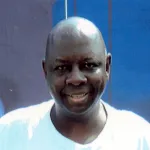College Degrees Help Incarcerated People Take the Next Step to Freedom
TMS PEACE JOURNALISM, 21 Nov 2022
M. Yayah Sandi | Prison Journalism Project - TRANSCEND Media Service
Since 2013, the New Jersey Scholarship and Transformative Education in Prisons initiative, or NJ-STEP, has helped hundreds of individuals earn degrees. What’s next for the program?
The Prison Journalism Project trains incarcerated writers to become journalists and publishes their stories.
15 Nov 2022 – At East Jersey State Prison prior to 2013 the only rehabilitative program that was broadly available — in theory, if not in practice — was a high school equivalency diploma.
The culinary arts program which had once been available had been transferred to another prison, and no one was hired to replace the welding, auto body and auto mechanics instructors when they retired, thus terminating those programs.
The desire for self-improvement and ways to prepare for their return to society led Russell Owen, Tony Henshaw and others, along with some outside collaborators, to propose what became known as the New Jersey Scholarship and Transformative Education in Prisons program, or NJ-STEP.
The program began offering classes in March 2013 through a consortium of colleges and universities. Today, degrees are awarded through Raritan Valley Community College (associate degree in liberal arts) and Rutgers University (bachelor’s degree in justice studies), with Drew University and Princeton University also among the partners. Initially, NJ-STEP ran on corporate sponsorships, but students now qualify for Pell Grants.
Joel Negron received his associate degree from what is now called Middlesex College and graduated magna cum laude in 2018 from Rutgers University. Negron said he had limited opportunities prior to the inception of NJ-STEP. He had been certified in general carpentry through the corrections department’s State Use Industries program, when East Jersey State Prison used to have a furniture shop, but he wasn’t interested in being a carpenter. He hadn’t been sure what it meant to earn a liberal arts degree, but it gave him options that he didn’t have before.
Solwazi Nyahuma was also one of NJ-STEP’s original students and graduated summa cum laude in the same class as Negron. Prior to incarceration, from 1982 to 1984, Nyahuma had attended Kansas Wesleyan University in Salinas, Kansas. He had expected NJ-STEP to be a watered-down curriculum based on the perception that men in prison were ill-equipped to handle regular classes; but he said the instruction he received was on par with what he had received at Wesleyan.
However, Nyahuma said it was harder to focus on his work in prison because of the unpredictability of the prison system. He also found it difficult to study because he was unable to control his environment.
The officers tried to discourage the students by making their interactions as uncomfortable as possible, he said. Nyahuma also said doing research was challenging because the NJ-STEP library had limited resources. Students had to borrow books from others or have family members obtain research materials they needed.
Two professors who made a huge impact were Nell Quest, a former assistant teaching professor at Rutgers with whom Nyahuma took five classes, and Chris Hedges, an author and former New York Times foreign correspondent. Nyahuma said Quest individualized her teaching to get the most from her students, and she took the time to get to know the students so she could help them to realize their potential. He said Hedges shared a lot about his vast experience with the students.
Another professor who left a lasting impression on the men was Cornel West. Although he only taught for a semester, all 144 men in the program participated in his class, which made it closest to an on-campus lecture hall experience.
”Dr. West captivated the attention of everyone because of the passion with which he taught,” Negron said, adding that they were all spellbound by his lectures. “He awakened the future philosopher in me and opened my conscience to deeper truths.”
Both men also had suggestions to improve the program even further. Negron said he would like to see a student advisory board reinstated.
The initial advisory board consisted of 10 students who had each been incarcerated for over 20 years and understood the politics of incarceration and how to maneuver through carceral spaces. They had the respect of the men as well as the prison administration. These men who formed the first board helped lead and shape the program and were instrumental to its success. A new advisory board would give more men the opportunity to prepare for life beyond prison, Nyahuma said.
William Davila, who had been enrolled in the program before he transferred to another prison, said he had wished he could pursue something other than a liberal arts degree. Because of NJ-STEP’s limited options, he had also been enrolled in a correspondence course through the Cleveland Institute of Electronics to pursue a degree in electronics engineering.
But most of the men in NJ-STEP agree with Negron and Nyahuma that the program has contributed to their rehabilitation by equipping them with marketable skills.
Negron has already been accepted by Rutgers to enroll in its graduate program after he leaves prison. He is also a finalist for a fellowship at Howard University. His goal after prison is to pursue a career in social justice or social work.
”NJ-STEP has more than adequately prepared me and has unequivocally transformed my mind, giving me the necessary tools not only to compete, but to excel in all aspects of life,” Negron said.
______________________________________________
 M. Yayah Sandi is a writer incarcerated in New Jersey. He requested that his first name be withheld.
M. Yayah Sandi is a writer incarcerated in New Jersey. He requested that his first name be withheld.
Go to Original – prisonjournalismproject.org
Tags: Anglo America, History, Journalism, Media, Peace Journalism, Prison Journalism Project, Prisons, Solutions Journalism, USA
DISCLAIMER: The statements, views and opinions expressed in pieces republished here are solely those of the authors and do not necessarily represent those of TMS. In accordance with title 17 U.S.C. section 107, this material is distributed without profit to those who have expressed a prior interest in receiving the included information for research and educational purposes. TMS has no affiliation whatsoever with the originator of this article nor is TMS endorsed or sponsored by the originator. “GO TO ORIGINAL” links are provided as a convenience to our readers and allow for verification of authenticity. However, as originating pages are often updated by their originating host sites, the versions posted may not match the versions our readers view when clicking the “GO TO ORIGINAL” links. This site contains copyrighted material the use of which has not always been specifically authorized by the copyright owner. We are making such material available in our efforts to advance understanding of environmental, political, human rights, economic, democracy, scientific, and social justice issues, etc. We believe this constitutes a ‘fair use’ of any such copyrighted material as provided for in section 107 of the US Copyright Law. In accordance with Title 17 U.S.C. Section 107, the material on this site is distributed without profit to those who have expressed a prior interest in receiving the included information for research and educational purposes. For more information go to: http://www.law.cornell.edu/uscode/17/107.shtml. If you wish to use copyrighted material from this site for purposes of your own that go beyond ‘fair use’, you must obtain permission from the copyright owner.
Read more
Click here to go to the current weekly digest or pick another article:
TMS PEACE JOURNALISM:
